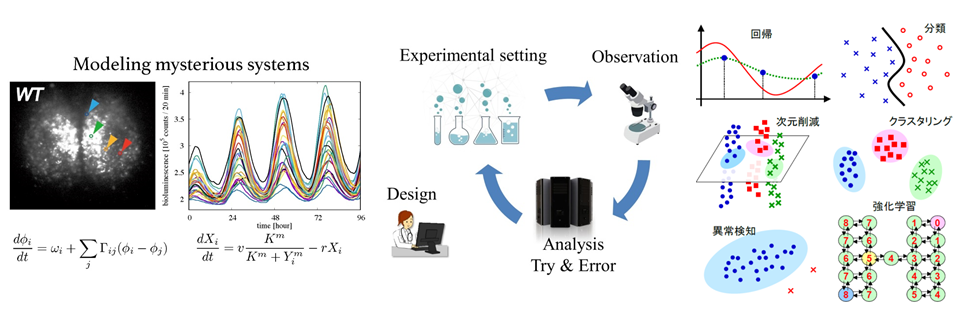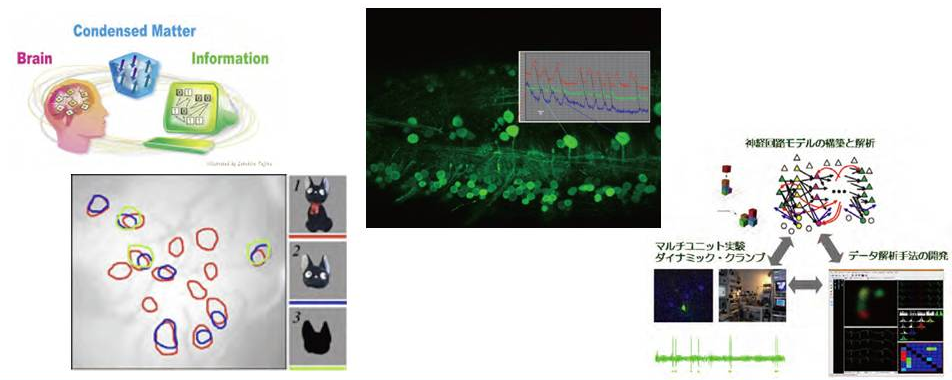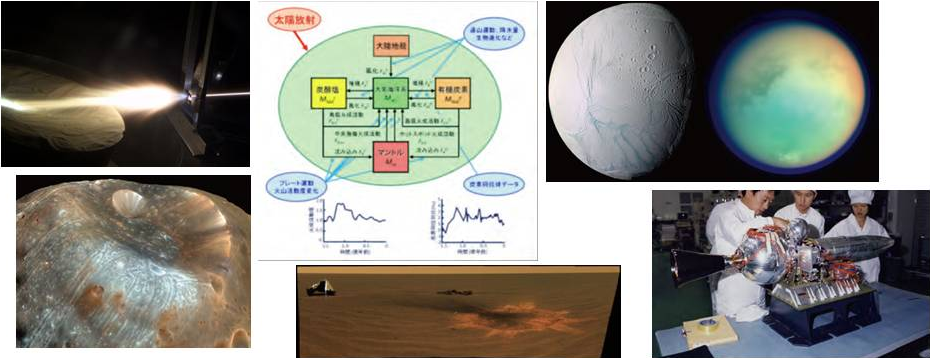Department of Complexity Science and Engineering
What is Complexity Science and Engineering?
The Department of Complexity Science and Engineering was established to elucidate “complexity” through an integrated approach that fuses science and engineering, and to educate scientists and engineers who can create new paradigms in this interdisciplinary field.
Real‑world systems often exhibit complex, nonlinear phenomena that cannot be treated as a simple linear superposition of parts. Triggered by concepts such as chaos and fractals, it has become increasingly clear that complex systems—where many nonlinear elements strongly interact—are ubiquitous across scales, and that understanding them is essential to create the science and engineering of the 21st century.
Our department advances this goal by harmonizing experimental/observational and theoretical approaches, iterating analysis and synthesis, and tackling complexity from a transdisciplinary perspective.
Through experimental approaches such as brain/body measurement, bio‑imaging, and molecular function analysis, combined with theoretical approaches including control theory, statistical mechanics, and nonlinear dynamics, we study brain information processing and biological mechanisms and explore applications to perception/recognition devices and human‑assist systems.
To answer whether life on Earth is unique or universal, we address problems such as the evolution of planetary atmospheres and environments, coevolution of Earth’s environment and life, and phenomena in magnetospheres and plasmas. We aim to elucidate the surface environmental system of the water planet that supported life for the last 4 billion years.
We study complex phenomena of matter in extreme conditions—from ultralow‑temperature solids to ultra‑high‑temperature plasmas—and their applications. The module consists of a nano submodule that investigates complex phenomena at surfaces/interfaces and within solids from a microscopic viewpoint to develop novel functional materials, and a plasma submodule that conducts high‑beta plasma physics and fusion research using a spherical tokamak.
Curriculum
The curriculum figure gives an overview of coursework offered by the department. The core program covers fundamental concepts and techniques for approaching complex systems.

Student Interviews
Hear from our students about research, coursework, lab life, and living in Kashiwa.

Career Paths
Graduates of the Master’s and Doctoral programs find positions across diverse sectors. Please see the Japanese page for more information.



